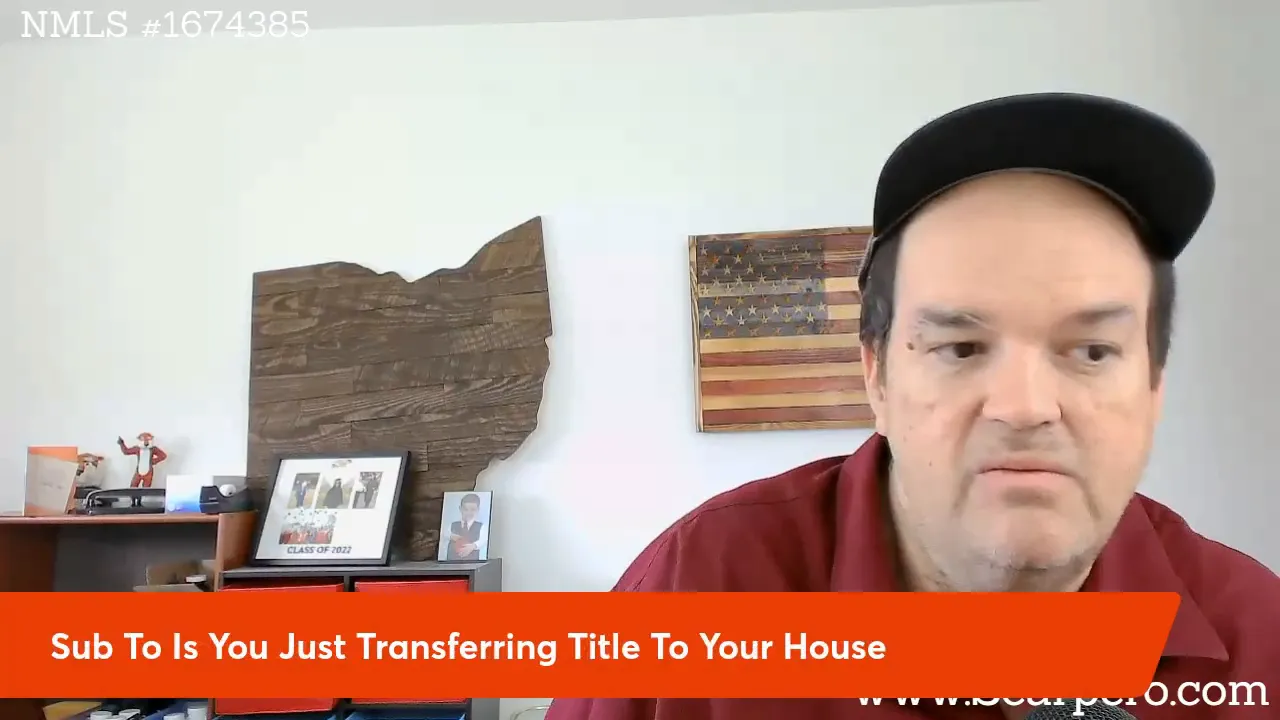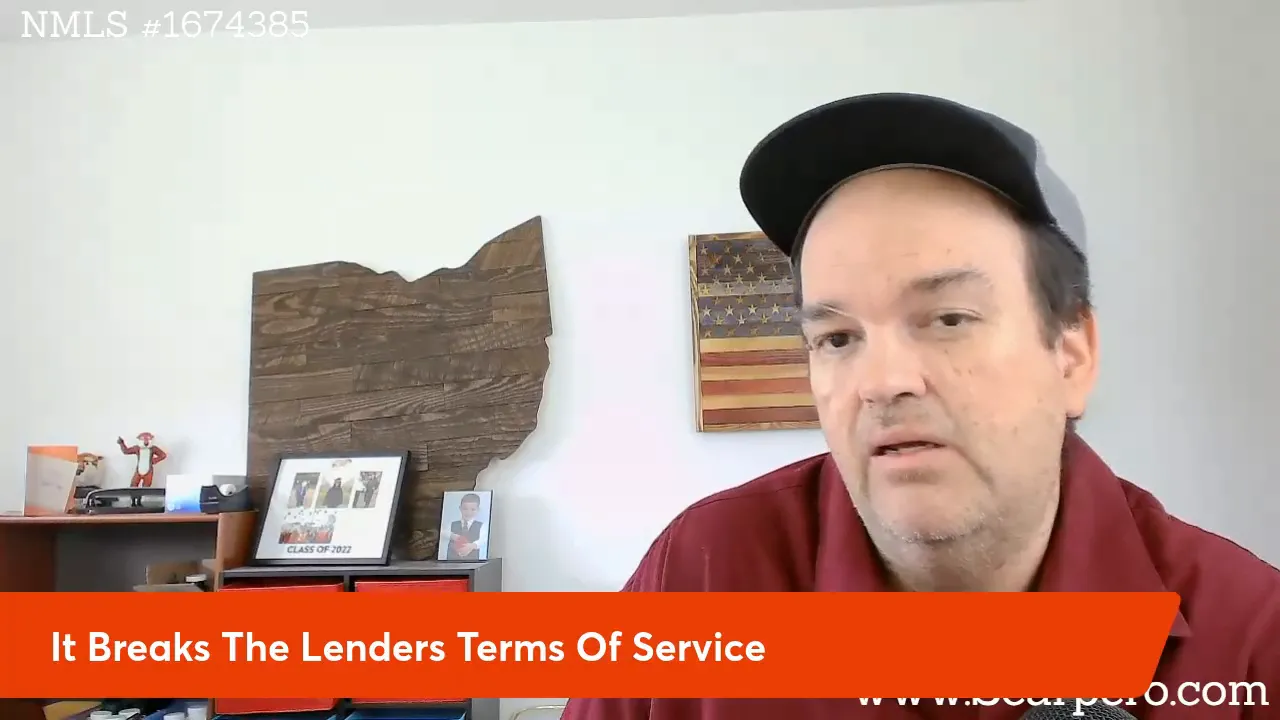
The 6 Most Common Mistakes That VA Homebuyers Make
Template The 6 Most Common Mistakes That First Time VA Homebuyers Make Buying your first home using a VA loan is an exciting milestone, especially
Carlos Scarpero- Mortgage Broker
When it comes to selling your home, especially if you are a veteran using a VA loan, understanding the nuances of the process is crucial. A topic that often comes up in the veteran community, particularly in the Better VA group, is the concept of selling a home "subject to" the existing mortgage. This method is sometimes presented as an easy way to sell a home without going through the traditional route, but there are significant risks and implications that every seller should know before proceeding.
In this article, we'll break down what selling "subject to" means, how it differs from a traditional VA loan assumption, the risks involved, and when, if ever, it makes sense to consider this option. This discussion is inspired by conversations led by Chris Griffith from Better VA and insights from years of experience helping veterans navigate VA loans.
First, let's clarify what "subject to" actually is. It is a form of loan assumption but is distinctly different from a traditional VA loan assumption. In a traditional VA assumption, the buyer takes over the existing mortgage payments, but with full lender approval. This means the buyer must qualify under the lender's standards, their credit is evaluated, and the loan officially transfers to them. Most importantly, the loan then appears on the buyer’s credit report, and if the buyer is a veteran, the VA entitlement transfers to them as well.
On the other hand, selling "subject to" means the buyer takes over the title of the property, but the existing mortgage remains in the seller’s name. The loan is not officially transferred, and the lender’s permission is typically not obtained. This kind of arrangement allows the buyer to make payments on the seller’s mortgage without formally assuming the loan through the lender.

One reason "subject to" deals have attracted attention recently is due to the current interest rate environment. Many homes with VA loans have low-interest rates from a few years ago, sometimes as low as 2-3%. Today, new loans might have rates around 6%. Buyers see assuming a low-rate loan as a better financial deal than qualifying for a new, higher-rate mortgage.
However, the key difference is that traditional VA assumptions require lender approval and qualification, while "subject to" sales bypass this process — which can seem like an easier, faster path but comes with hidden risks.
One of the most important things to understand about selling "subject to" is that it breaks the lender's terms of service, specifically the "due on sale" clause. This clause gives the lender the right to call the entire loan balance due if the property is sold or transferred without their consent.
While some investors claim that lenders rarely enforce this clause if payments are made on time, the risk remains very real. If the lender chooses to enforce the clause, the seller could be forced to pay off the entire mortgage immediately, which is usually not feasible.
Moreover, since the mortgage remains in the seller's name, it continues to appear on their credit report. This means the seller is still financially liable for the loan. If the buyer (or investor) fails to make payments or makes late payments, it will negatively impact the seller’s credit score. The seller effectively has no control over this, yet bears the consequences.

Another critical consideration is the VA entitlement, which remains tied to the seller after a "subject to" sale. Unlike a traditional assumption where entitlement transfers to the new veteran buyer, in a "subject to" arrangement, the seller’s entitlement is still tied up in the property. This can limit the seller’s ability to use their VA loan benefit for purchasing another home in the future.
Additionally, from a VA loan guideline perspective, the seller now carries a contingent liability. This means when applying for a new VA loan, the lender must count the mortgage payments on the sold property as part of the seller’s debt obligations for at least twelve months. This can significantly impact the seller’s debt-to-income ratio and ability to qualify for a new loan.
Many sellers mistakenly believe that because they are no longer living in the home or receiving rent, this liability won’t affect them. However, selling "subject to" is not the same as renting out your home. The VA and lenders treat the mortgage as an active liability, which can complicate future home purchases.
Given the risks, it’s important to stress that selling "subject to" should generally be a last resort, not a first choice. If you have other options, such as selling through a realtor or using a traditional VA assumption, those are far safer and more straightforward routes.
However, there are limited situations where "subject to" could be a viable option, particularly in pre-foreclosure scenarios. If you find yourself facing imminent foreclosure — for example, if the sheriff’s sale is scheduled within 30 days — "subject to" might help you avoid a foreclosure on your record, which carries a two-year waiting period before you can use VA benefits again.
In such emergency financial situations, a "subject to" sale might prevent the loss of entitlement and allow you to move forward faster than waiting out foreclosure consequences. But even here, it’s critical to explore all available options first, including reaching out to the VA and your lender for assistance. Both organizations have departments and programs designed to help veterans in distress before foreclosure occurs.
In conclusion, while the idea of selling your home "subject to" the existing VA loan might sound enticing, especially in a high-interest-rate environment, the risks involved are significant. The potential damage to your credit, the violation of your mortgage terms, the loss of control over your loan, and the complications with entitlement and future home buying should not be taken lightly.
If you are not facing an urgent financial crisis, the safest and most prudent approach is to sell your home through traditional means — either via a realtor or a proper VA loan assumption. These methods protect your credit, comply with lender requirements, and preserve your VA entitlement for future use.
If you are in a difficult situation and considering a "subject to" sale, make sure you understand all the implications and seek professional advice. Contact the VA and your lender immediately to explore all possible solutions. Remember, knowledge is power, and understanding your options can save you from costly mistakes.
A traditional VA loan assumption involves the buyer qualifying with the lender and officially taking over the mortgage, with the loan transferring to their credit and entitlement. In a "subject to" sale, the buyer takes title, but the mortgage remains in the seller’s name without lender approval.
Yes. Since the mortgage remains in your name, any late payments or defaults by the buyer will negatively impact your credit score. You have no control over their payment behavior once the sale is complete.
Yes. Your VA entitlement stays tied up with the loan in your name until it is paid off or assumed properly. This can affect your ability to buy another home using your VA benefits.
It may make sense in emergency situations, like pre-foreclosure, to avoid foreclosure and the associated waiting periods. However, it should be considered a last resort after exploring all other options.
Contact the VA service center and your lender immediately. They have programs and departments to help veterans avoid foreclosure. Do not hide from the situation, and seek professional advice.
If you have any questions about VA loans or the details about selling your home "subject to," feel free to reach out to me directly. I’m here to help veterans navigate the complexities of home loans and protect their interests.
Carlos Scarpero
Phone: 937-572-3713
Email: cscarpero@edgehomefinance.com
Website: scarpero.com
Remember, selling your home is a significant decision. Arm yourself with the right information and professional advice to make the best choice for your future.

Template The 6 Most Common Mistakes That First Time VA Homebuyers Make Buying your first home using a VA loan is an exciting milestone, especially

500,000 More Home Sellers Than Buyers? Don’t Believe the Hype Table of Contents Key Takeaways Understanding Redfin’s Viral Housing Study Contrasting Data from Realtor.com and

Template Edge Home Finance Is Hiring Loan Officers Table of Contents Key Takeaways Why commission structure matters: keep what you earn True broker relationships, with